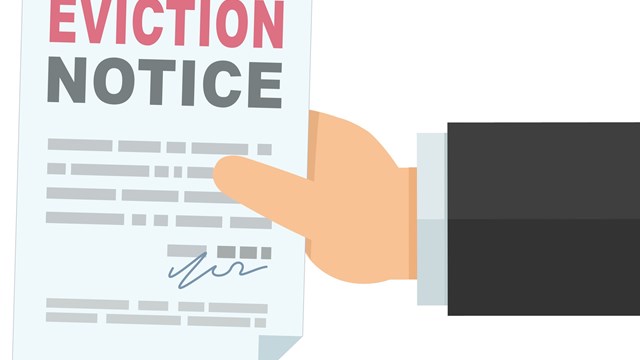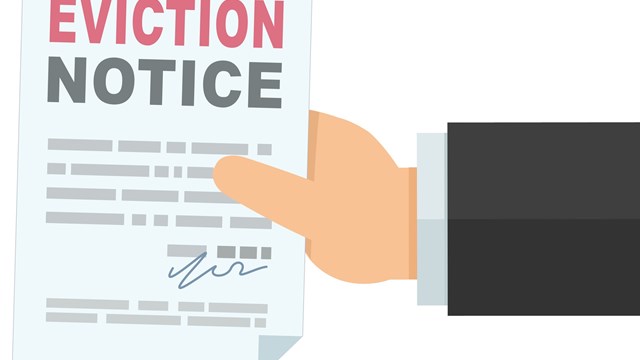Aside from yourself, who exactly may live in your condo or co-op unit? While you as the owner might believe you have the sole authority to make that decision, most (if not all) condominium and co-op properties today have policies spelled out in their governing documents that determine the answer to that question.
The Nature of Restrictions
Andrew B. Freedland, a shareholder with the Manhattan-based law firm of Anderson Kill, explains that the two types of ownership convey very different status on the nature of the leasing relationship. “In a co-op, it’s a sublease,” he says, “because you [as a shareholder] are the tenant, and you are issuing a sublease. The terms by which you are able to sublet are prescribed generally by the proprietary lease and based upon the framework set forth in that lease. Also, most co-ops have a set of house rules that detail what procedures fit within that framework.”
Freedland goes on to explain the differences in condominium ownership. “In a condo, it’s a direct lease, because you are the owner of the unit. In those circumstances, that is governed by the bylaws of the condominium. In a condominium, when you lease out your apartment, the board doesn’t have the same set of rights as a co-op board does,” to dictate whether you may rent out your unit—within certain limitations. What the condo board does have is the right of first refusal. They may refuse the rental – but are then are obligated to rent the unit from you in place of the tenant you selected.”
In effect, in a co-op, the board has the right to approve or reject your sublease. In a condominium, the board has the right to waive their right of first refusal, thereby approving your tenant or renting it themselves. “This very rarely happens,” says Freedland. “I’ve never seen it.”
Subleasing in co-ops is governed by the proprietary lease, and in condominiums by the association bylaws. No statutory laws exist to prohibit leasing of a condo. In New York State, there cannot be an “unreasonable restraint on the alienation of real property.” That’s why, Freedland explains, the right of first refusal is there. It’s not interpreted as unreasonable restraint.
Be My Guest?
So, the question poses itself, ‘Who can stay in my unit?’ To a great extent that depends on your building and their rules. According to Gregory Cohen, CEO of Impact Management, a property management firm in New York, “Usually any time there is a sublet in a co-op it has to be approved by the board, if in fact they allow it at all.” Subleasing in co-ops can have far-ranging effects on everything from building maintenance (tenants are often much harder on the property than owners) to refinancing (lenders don’t like to see too many units sublet – they prefer owner occupancy too). “About 60 percent of the co-ops we manage prohibit all subletting, or only permit a specific percentage of units to be sublet in any given year.”
When subletting is permitted there are generally strict limits placed on the length of the lease, explains Cohen. Leases are rarely for more than one year, and always contain a minimum lease term to safeguard against short-term rentals, like one sees with homesharing apps like Airbnb.
Alternatively, points out Cohen, “In a condominium you can’t really stop owners from leasing. What a condo can do, unless there is a first right of refusal, in which case the board would have to lease the apartment, is for the board to institute a policy where the owner must present a copy of the lease and require that it not be for less than one year.”
One issue in New York, especially in the absence of doormen or a concierge, is illegal subletting. One very effective way of battling this problem is converting the public entrances from standard metal keys to electronic key fobs. “You can control who has a fob,” says Cohen, “and they can’t be easily replaced or duplicated like a traditional key. Each fob is allocated to a specific person. They can’t say, ‘I lost my key,’ which you have no way of proving, get a new one, and hand the old one over to an illegal subletter. With the fob system, we can deactivate a ‘lost’ fob and issue a new one. This makes illegal sublets much more difficult to do.”
Interestingly enough, building managers in Florida have reported key fob duplicators that can illegally copy the electronic codes from a legal fob to an unauthorized one. Clearly, all technologies can eventually be subverted.
The Millennial in the Guest Room
Particularly in condominiums, unit owners have a right to lease out their units, with some reasonable level of restrictions as outlined above. But what about other potential non-resident occupant situations? What if your adult children move back in? What if an aging parent becomes too frail to live alone? What if you want a roommate, or your best friend from college wants to stay in your unit while you’re in Paris? There’s a contingency for every one of these and more.
A fact of life today is that many of us have grown children who are unable to afford to live on their own and we want to help them out for a while. Will your condominium or co-op permit junior to camp out in the guest room?
“If you are there, yes,” says Freedland. “There is case law that says your children can live in your apartment even if you’re not there.” (see https://cooperator.com/article/can-my-adult-child-live-in-my-co-op-without-me). Freedland explains that the operative word in the clause in the proprietary lease governing this matter is “and.” The clause says the leasee and their spouse, children, grandchildren, parents, grandparents, and domestic employees may reside in the apartment. “‘And’ can mean contemporaneously, but some case law conflicts with that question,” says Freedland. “In 50 Sutton Place Owners vs. Freed, two adult children lived in their parents’ apartment. The parents’ primary residency was in New Jersey, but they sometimes used the apartment on weekends or other times. The court said that contemporaneous occupancy doesn’t meant concurrent occupancy,” and the case was dismissed.
Cohen concurs that grown children living in the extra bedroom usually doesn’t raise a lot of eyebrows. He cautions though that the best way to avoid an issue is to add them to your proprietary lease.
Dear Old Dad…or Mom
An often-challenging reality today in addition to adult children who may want to camp out in the guestroom for a while is the parent who can no longer be on their own. Assisted living facilities are not for everyone, for many reasons. What position will your condo association or co-op corporation take in the event you want to move your mother or father-in-law into the second bedroom? A lot of their response will have to do with the functionality of that person.
“There’s no problem with elderly parents moving in,” says Cohen. “The issue becomes the live-in help they need. In those situations, it’s really how a board wants to deal with the situation, because the helper is not a relative,” though there is some protection for domestic employees under the occupancy clause mentioned earlier. “For the most part we advise that our boards accept caretakers, given the situation.” Freedland confirms that legally, “elderly parents are fine as are caregivers as domestic employees.”
Short-Term Rentals
One of the hottest hot-button issues in the past few years has been Airbnb and other types of short-term rentals. The vast majority of associations and other common interest communities will not permit them, and basic leasing and/or subleasing rules and requirements pretty much prohibit them in other types of housing.
The City of New York has passed ordinances to prohibit Airbnb-type rentals altogether. That doesn’t mean some don’t try to find a way around it. Realistically, especially in an environment where there are doormen, concierges, and neighbors watching, slipping different strangers into your apartment on a regular basis would be a feat worthy of a CIA operative – but given how lucrative it can be to host tourists and other travelers, people do try it anyway.
The specifics of how your proprietary lease is written and the laws governing guests in residences in New York provide what appears to be a loophole for those absolutely intent on acting as innkeepers. “A residential unit, owned or leased by an individual, can have residency or guests of the foregoing,” says Freedland. “Specifically, it says you can have guests.” What that means is that if you are present in the apartment while your guests are in residence you may have them there. Charging for it may change that determination.
Security matters to owners. Occupancy restrictions matter because they have a direct effect on the quality of life at the community and the ability of owners to use their units freely. Occupancy restrictions are among the most important of any restrictions in a co-op or condo. They really need to be addressed comprehensively, not one piece at a time, and they need to be addressed with input from the community and drafted by someone with experience representing community associations, so they say what you intend them to say and they don’t go foul of the fair housing laws or other legal impediments. The goal is to strike a balance between owner occupancy and security and some level of reasonable use for all the owners, whether it’s an occupant or investor.
A.J. Sidransky is a staff writer/reporter for The Cooperator, as well as a published novelist.










Comments
Leave a Comment